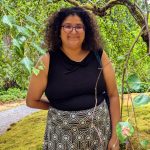Course Information
- 2024-25
- CTJ214
- 5-Year B.A., LL.B. (Hons.), 3-Year LL.B. (Hons.), LL.M., Master's Programme in Public Policy
- III, IV, V
- Mar 2025
- Elective Course
How does this course relate to the programme curriculum: Does it develop on a prior course in the programme or is it a foundational or standalone course?
This course builds on the core course on Environmental Law as well as on Human Rights by incorporating ideas of environmental justice as well as building theatre and facilitation skills However, these courses or others are not a prerequisite and this course can be completed as a standalone course.
Describe how you have approached the course. What have you included/excluded and why? Choice of materials: primary or secondary readings / case law;
The course is designed to give students both a conceptual as well as a practical understanding of environmental justice (EJ). This is achieved primarily through the use of experiential learning of theatre of the oppressed and its application to a real-life situation. As a final output, students will work on a public ‘forum theatre’ performance around ‘environmental justice’ in Bengaluru to build situated knowledge of our own socio-ecological system. The two aspects of the course are as below:
Conceptual
Students will understand the systemic causes of environmental injustices and the role that law plays in negotiating between state, corporations and communities in different ecosystems. The course will explore how marginalisations of caste, gender and indigeneity play out in the narrative and governance of ecosystems. Three ecosystems will be examined in detail – coasts, forests and urban areas. As a framing device, each of the ecosystems will be looked at in conjunction with a different axis of power: forests and indigeneity, gender and coasts, caste and urban spaces.
Material used for this section will be primarily book chapters and journal articles. Some multimedia is prescribed for most sessions, particularly music videos, in recognition of the key role of music in environmental justice movements as a chosen form of expression of communities themselves.
Methodology
The students will also be introduced to principles and tools for facilitation, particularly focused on experiential learning of Theatre of the Oppressed methodologies. Lawyers working in the field of environment are often called on to go beyond the strict realms of law, and engage in a multi-disciplinary space where they are required to understand ecology, socio-political dynamics, use a vast array of methodologies from different fields, and engage with a host of different stakeholders. This course introduces students to one powerful methodology, ie theatre of the oppressed, along with other facilitation tools. Facilitation skills may be used in undertaking participatory research, capacity building, awareness programmes and in advocacy approaches. Importantly, Theatre of the Oppressed is also a key way to build a reflective praxis in environmental justice and create an embodied understanding of power and privilege, especially for people from elite backgrounds. Experiential learning of TO methodologies is focused not only on skill building, but also to develop an internal understanding of how our own identities, biases and preconceptions interact with power dynamics in society, as well as an external view on how axes of discrimination and power interact in socio-ecological systems.
Describe your pedagogical method: lectures, Socratic discussion, seminar style discussion, response papers or group work, field work;
The course draws heavily on the principles of Paulo Freire’s ‘Pedagogy of the Oppressed’, conceptualising a learning framework in which students and facilitators build critical consciousness around environmental issues. This entails viewing injustices as a culmination of structural, social, political and environmental factors, rather than as independent events.
Augusto Boal’s ‘Theatre of the Oppressed’ (TO) builds upon this philosophical framework, using theatre and movement to ensure that understandings of power move from the academic to the embodied, enabling deeper study and critical reflection, as well as for collective action. Methodologies within TO, including forum theatre and legislative theatre have been used by communities to discuss and find solutions to complex environmental issues and engage with socio-political discourses. The facilitators will draw from their own experience of using TO with students and adivasi communities.
Theatre methodologies will take students through the stages as articulated by Boal, from ‘knowing the body’ by doing simple movement games to building the ‘language of theatre’, more complex ways in which theatre can be used to generate thought and discourse.
Other tools of facilitation like mapping and other participatory exercises will also be used in class hours as a way to engage with the readings and build experiential learnings in other facilitation tools.


